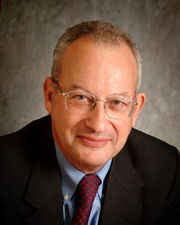|
News & Views item - October 2007 |
UK to Introduce New Incentives for Maths and Physics Teachers.
(October 6, 2007)
 |
|
David Sainbury |
Yesterday the British government launched a campaign to recruit more qualified maths and physics secondary school teachers, in order to reverse their long-term decline.
The announcement is part of a major review of UK government policy in science and innovation that was commissioned by Prime Minister Gordon Brown at the beginning of the year, while he was still chancellor of the exchequer.
The review is being led by the highly respected former science minister David Sainsbury with the principal object to reverse the 20-year decline in the numbers of pupils taking A-level physics.
"The main cause of that is the lack of qualified physics teachers," Lord Sainsbury said at the launch of the report yesterday. "It probably wasn't helped by the fact that, in 1990, we had the introduction of double science [General Certificate of Secondary Education, GCSE], so physics was taught as part of that. Therefore it got slipped out of the curriculum or, if it was taught, the kids didn't really understand they were doing physics.
"The prime minister, when he asked me to do this, wanted the report to look at science and innovation policies in the context of competition from low-cost emerging economies. The only way we will be successful is by creating the conditions for companies to go into high value-added services, manufacturing and industries. Science and innovation is critical to our success."
Lord Sainsbury added: "If you decide we've got to recruit physics teachers from those doing physics, you end with one in five people who do physics having to become a teacher, [but] If you widen it to other subjects like materials science, and then have a conversion course so they're up to speed on the physics, then it could be one in 3."
The secretary for Children, Schools and Families, Ed Balls, said: "To get top science students we need top teachers. We will also introduce accredited physics, chemistry and maths courses to retrain teachers to become specialists in these disciplines, beginning this month. I have agreed to pay supply cover to schools so that teachers can be released from the classroom and to ensure this year's courses are fully subscribed. Every teacher who completes the course will receive a financial incentive of £5,000 (A$11,400)," and he added that the government would spend a further £8m (A$18.2m) over the next three years, on top of the £2.5m (A$5.7m) already allocated this year, to double the number of schools with science and engineering clubs from 250 to 500 by April 2009.
In his report Lord Sainsbury stressed: "Careers advice should be firmly rooted in the labour market - present and predicted future - and careers advisors should have excellent knowledge of both these trends, and of the learning routes to get there. There is a widespread consensus across the UK private and public sectors that the careers advice on offer in this country is severely lacking.
"Evidence shows that pupils decide what to study at a young age, often before they are 14 years old, yet the existing school and university careers-guidance system is largely configured to provide advice close to the formal decision ages - 16, 18 and beyond."